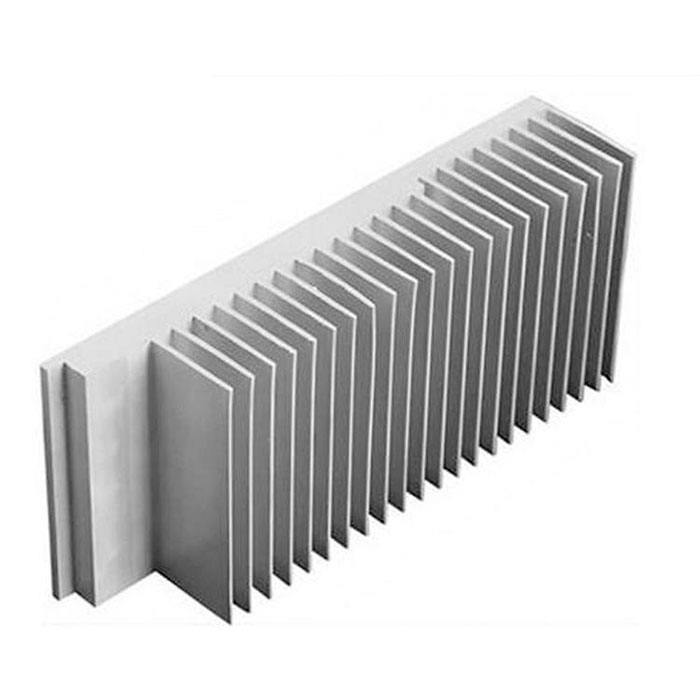Why Are CNC Machining Parts Crucial for Modern Manufacturing?
2024-12-13
In today’s advanced manufacturing industry, precision and efficiency are key factors that determine the success of a production process. One of the most significant contributors to achieving these qualities is CNC (Computer Numerical Control) machining. CNC machining parts have become a cornerstone in industries ranging from aerospace to automotive and electronics. But why exactly are CNC machining parts so crucial for modern manufacturing? Let’s dive into the world of CNC machining to understand its importance.
What Is CNC Machining?
CNC machining is a process that uses computer-controlled machines to manufacture parts by removing material from a workpiece. The process relies on automated tools like mills, lathes, and routers, which follow precise instructions from a computer program to create complex parts with a high degree of accuracy.
The machines used in CNC machining are highly versatile, capable of producing a wide range of parts for various applications. From simple components to highly intricate designs, CNC machining ensures that each part meets the specific requirements of the end product.
Why Are CNC Machining Parts So Important?
1. Unmatched Precision and Accuracy
CNC machines are known for their precision, able to create parts with tolerances as tight as 0.001 inches (0.025 mm). This level of accuracy is essential in industries where even the smallest variation can affect the performance or safety of the product. For example, in the aerospace industry, CNC-machined parts are used to create components for aircraft engines, where precision is a matter of safety.
The ability to replicate designs with such exactness is one of the biggest reasons why CNC machining parts are in such high demand. Whether it’s for intricate designs in medical devices or high-performance automotive components, CNC machining provides consistent results with minimal variation.
2. Complex Designs Made Simple
CNC machining enables manufacturers to produce parts with complex geometries that would be impossible or extremely difficult to achieve with traditional manual machining. Using CAD (Computer-Aided Design) software, engineers can design intricate parts, and CNC machines will interpret those designs to create the final product. This capability opens up possibilities for more creative, innovative designs in industries like electronics, robotics, and even consumer goods.
For example, CNC machining is used to create parts with intricate internal features, such as cooling channels in high-performance automotive engine components or complex shapes used in drone frames. This would be impossible with manual processes that require more time and effort to achieve the same results.
3. Improved Efficiency and Reduced Lead Times
CNC machining is known for its high-speed operation, which greatly improves manufacturing efficiency. Once the machine is set up and programmed, it can run for long periods without requiring much supervision, resulting in faster production times. Additionally, CNC machines can perform multiple operations such as drilling, turning, and milling in a single cycle, reducing the number of setups required.
This efficiency helps shorten production lead times, enabling companies to meet tight deadlines and increase overall productivity. In industries like automotive and consumer electronics, where time-to-market is a key factor, CNC machining plays an essential role in speeding up the manufacturing process.
4. Material Versatility
CNC machining is compatible with a wide variety of materials, including metals like aluminum, steel, and titanium, as well as plastics, composites, and even wood. This versatility allows manufacturers to choose the best material for the specific requirements of the part, whether it's for strength, weight, or resistance to heat or chemicals.
In aerospace, for instance, titanium parts are often CNC-machined due to the material's strength-to-weight ratio and resistance to corrosion. In electronics, plastic parts are often machined for their lightweight properties and electrical insulating capabilities.
5. Cost-Effective for Small and Large Runs
While CNC machining can be expensive to set up initially due to the need for specialized machinery and programming, it is highly cost-effective for both small and large production runs. Once the initial setup and programming are complete, the cost per part remains relatively low, making it a viable option for producing a wide range of parts, from prototypes to large-scale production runs.
In industries like medical device manufacturing, where precision and customization are critical, CNC machining is often used for small batch production, allowing for quick iterations of prototype parts before full-scale production. This makes it ideal for manufacturers who need flexibility and cost-efficiency in their operations.
6. Minimized Human Error
Manual machining processes rely on the skill and experience of the operator, which can lead to human error, especially when handling complex parts or tight tolerances. CNC machines, however, are programmed to execute tasks with consistent accuracy and repeatability, greatly reducing the risk of mistakes that can occur during the manual process.
The reduced potential for human error not only improves product quality but also minimizes the cost of rework and material wastage, making CNC machining a reliable option for industries where consistency and quality are paramount.
7. Automation and Flexibility
CNC machines are highly automated and flexible, capable of running multiple operations simultaneously with minimal human intervention. Once a program is created and loaded, the machine can run autonomously, completing parts one after another without the need for constant adjustments.
This ability to automate processes reduces labor costs and increases the overall capacity of the production line. Additionally, CNC machines can be easily reprogrammed for different part designs, allowing manufacturers to quickly adapt to changing customer demands or production schedules.
Applications of CNC Machining Parts
CNC machining is used in a wide variety of industries due to its versatility, accuracy, and efficiency. Some common applications include:
- Aerospace: Producing high-precision components for aircraft, engines, and satellites.
- Automotive: Manufacturing engine parts, transmission components, and body panels.
- Medical Devices: Creating custom implants, surgical instruments, and diagnostic equipment.
- Electronics: Machining components like housings, heat sinks, and connectors.
- Consumer Goods: Producing parts for appliances, gadgets, and sports equipment.
Conclusion
CNC machining parts have become a critical element of modern manufacturing due to their unmatched precision, versatility, and efficiency. The ability to produce complex parts with high accuracy while minimizing human error makes CNC machining indispensable in industries that demand quality and consistency. Whether you are producing a prototype or managing a large production run, CNC machining provides the reliability and flexibility needed to meet the demands of today’s competitive market. As technology continues to evolve, the role of CNC machining parts in shaping the future of manufacturing will only continue to grow.



